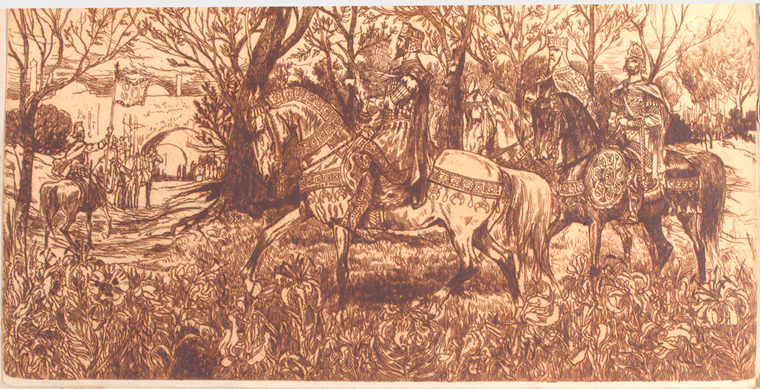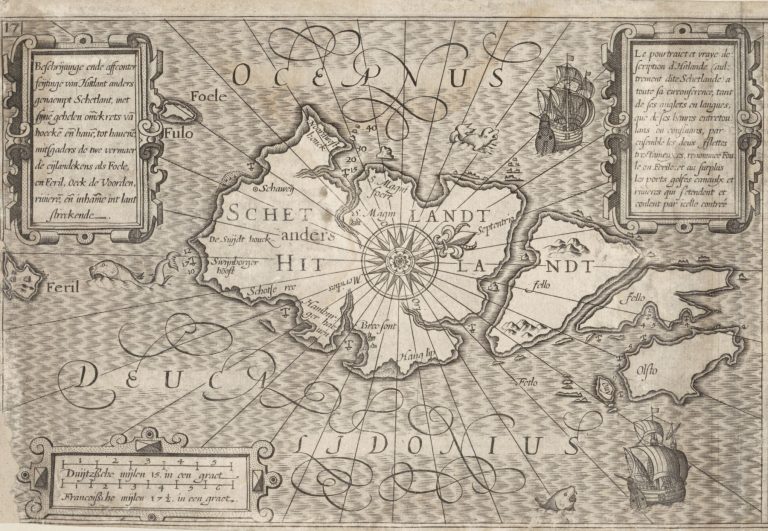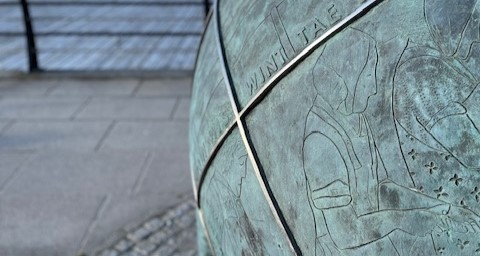
by Alex Feldman
Tell us a bit about your book.
The Monotheisation of Pontic-Caspian Eurasia follows in the footsteps of the works of scholars like Dimitri Obolensky, Jonathan Shepard, Andrzej Poppe, Simon Franklin, Omeljan Pritsak, Constantine Zuckerman, Peter Golden, Florin Curta and Christian Raffensperger. This book challenges many assumptions about the units of time and space by which we understand the past. It combines the individual and structural analyses of the foundations of many sovereign dynasties and ethnicities. For example, by attempting to impose their chosen form of monotheistic laws on their subjects, over generations, dynasties like the Ashinids, Dulids, Rurikids, Piasts and Arpads produced their own ethnicities like the Khazars, Bulgars, Rus’es, Poles and Magyars respectively. Therefore, ethnicity and sovereignty were never primordial or biological, but rather the direct byproduct of monotheism and its laws which have bound peoples together for generations.
Ultimately, this book seeks to demonstrate how periodisational terms we usually take for granted like “antiquity” or “medieval” are completely fabricated eurocentric nonsense and easily blend together just as “Europe” and “Asia” similarly blend together into Eurasia. I guess the same could be said for a larger study which may examine the same period across all of Afro-Eurasia or perhaps even the entire world. But I didn’t write that book.
What inspired you to research this area?
My grandmother Eudice Mesibov, a retired art history professor, has always inspired my interest in history. In 2011, I studied and volunteered in Athens, where I witnessed the turmoil caused by uncontrolled financial markets, learned Greek and an inspirational professor named Stavros Oikonomides introduced me to Byzantium. In 2012, having fortunately received a scholarship, I came to Britain’s University of Birmingham to study with professors Archie Dunn and Ruth Macrides at the Centre for Byzantine, Ottoman and Modern Greek Studies – and to focus on the 10th-c. prince Vladimir of Kiev, the first Rus’ian ruler to be baptized into Byzantine Christianity.
The idea for this book came in 2013 as I was working with my longtime University of Birmingham supervisor, Archie Dunn, and finishing a tedious MRes thesis arguing against the conventional story of the baptism of Vladimir in 987-989. Reading Paul Stephenson’s Byzantium’s Balkan Frontier, I wondered if the same historical processes and forces of monotheisation and sedentarisation were occurring all across the watersheds of Pontic-Caspian Eurasia. The question led to a PhD proposal which landed me back in Birmingham in 2014. Several years, conference presentations, article publications, one doctorate and manuscript later, it was ready for publication. My advisor, Ruth Macrides, made the connections to Edinburgh University Press. When she sadly passed away in 2019, I was devastated and will always feel her loss. Archie and Ruth have been almost like family to me.
What was the most exciting thing about this project for you?
The most exciting aspect of this project has been the business of publishing itself – many find the quick turnarounds, around-the-corner deadlines and the herculean labors of submission exhausting. No roller coaster gives me as much of an adrenaline rush as meeting publication deadlines with minutes to spare and colleagues with whom to share mutual dedication to literary excellence.
Did you discover anything particularly strange or surprising?
The strangest discovery was learning how controversial the Khazars remain today – imagine an entire branch of Abrahamic civilization lasting for centuries used as a political football by hard-line Zionists and antisemites for no other reason than their current ideological agendas.
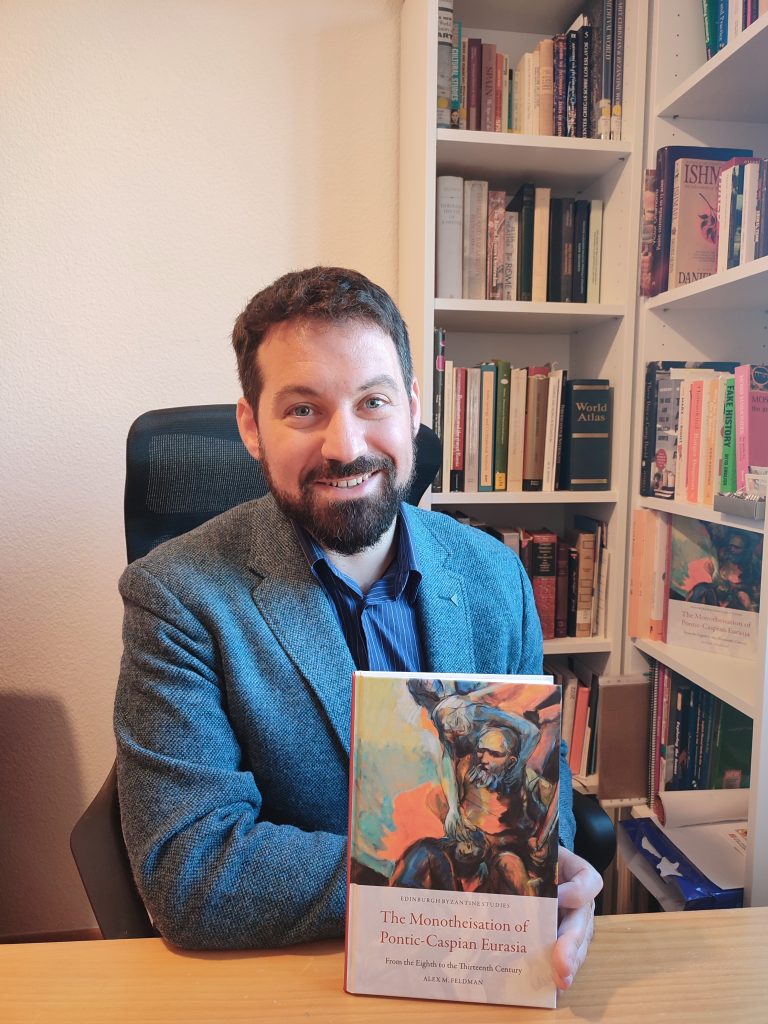
Did you get exclusive access to any new or hard-to-find sources?
The University of Birmingham’s Barber Institute has a world famous coin collection curated by Maria Vrij, whose expertise and access allowed me to study the varying purities of the coins of several dynasties side-by-side and argue for a model of ancient political economy which evolved directly from Byzantium until today. This numismatic research has provided the foundation for my next monograph.
Did your research take you to any unexpected places or unusual situations?
My research has taken me from Granada, Venice and Nafplio to Istanbul, Sofia and Moscow – and many places in between. In 2019 after I had been a cocktail bartender in Birmingham until my UK visa expired and proposed to my fiance (now wife, Pilar Hernández) on the Athenian Acropolis, I took a subsequent trip from Thessaloniki to Skopje for a conference. I met a group of dinghy sailors and managed to take a laser out into the Thermaic Gulf. But then the wind died and we drifted aimlessly for hours in the wine dark Grecian sea.
Has your research in this area changed the way you see the world today?
The most fundamental thing I’ve found gets to the very heart of the human condition. The faiths and sacred laws which were originally meant to unite us in common worship of a higher power (instead of ourselves) have always been co-opted by the most powerful among us, resulting in rival faiths and dynasties and leading to otherization and us-versus-them mentalities. In other words, this research has suggested to me that zero-sum thinking and tribalism seem to be ineradicable aspects of human nature.
What’s next for you?
I am currently in the final stages of preparing a new manuscript for publication in 2023: Orthodox Mercantilism: The Political Economy of the Byzantine Commonwealth.
About the book
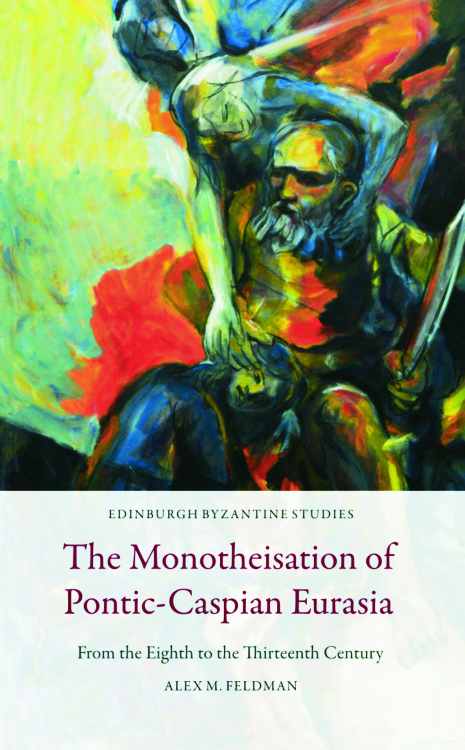
A comparative approach to the effects of monotheism on ethnicity and state-formation in Western Eurasia
What is the line between the ancient and medieval worlds? 330? 476? 800? Most historians acknowledge that these are arbitrary distinctions, but they remain nevertheless, taking on lives of their own. Alex Feldman challenges us to see them as the same world, except for the imposition of a given monotheism.
Order your copy of The Monotheisation of Pontic-Caspian Eurasia here
About the author
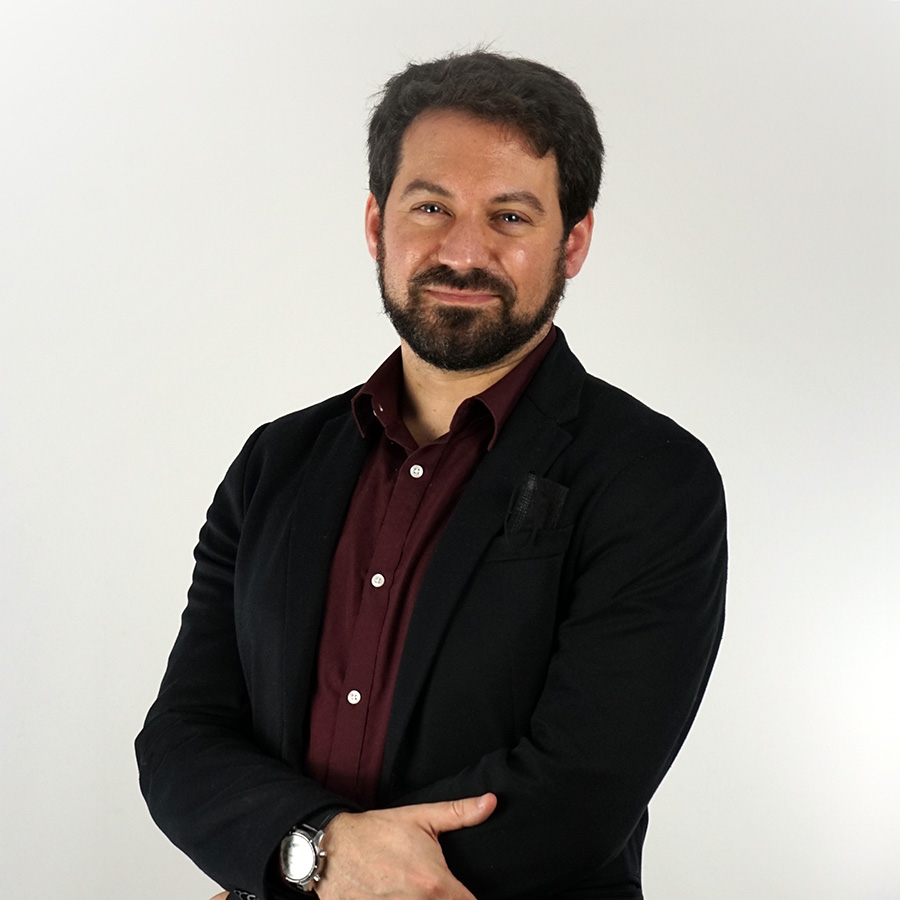
Alex Mesibov Feldman is an avid dinghy sailor and painter from West Nyack, New York. He received a BA from Roger Williams University of Rhode Island and received an MRes and PhD from the University of Birmingham. He has held a postdoctoral fellowship at the University of London’s Warburg Institute and has taught at the University of Birmingham, the State University of New York, Rockland, and the Rosenbaum Yeshiva of North Jersey. He is currently the chair of the department of languages and literature at CIS Endicott International University of Madrid.


